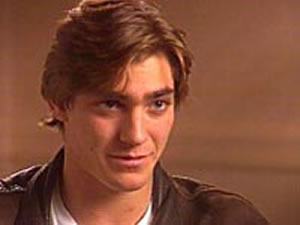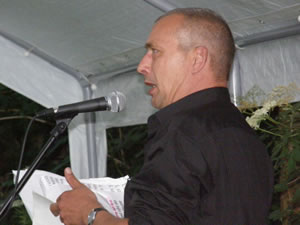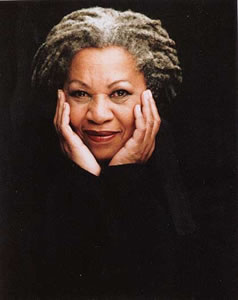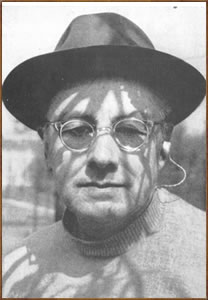De Amerikaanse schrijver Nick McDonell werd geboren op 18 februari 1984 in New York. Zie ook mijn blog van 18 februari 2009.
Uit: The Third Brother
„The summer is dragging for Mike as he rises, by escalator, out of the cool subway into the Hong Kong heat. He is too tall, out of place as he crosses the jammed street to Taikoo Tower, where he has been working for six weeks. Seems like a year. The tower looms over him, silent workers and pulsing technology, a kingdom of itself above the Hong Kong streets. Mike doesn’t like the skyscraper—it has become predictable—but he is grateful for the air-conditioning. Everything inside the tower works. Outside, not. His job, his internship, is at a news magazine that he had never read until the twenty-two-hour flight from New York.
Mike has several bosses at the magazine, but the reason he has the job is that the managing editor, Elliot Analect, is a friend of his father. Analect even looks like his father, Mike realized when they shook hands. All of those guys look alike, all tall, clean, white guys who have known one another for decades. They were in the same club at Harvard, wore the same ties. And then they went to Vietnam and almost all of them came back. Growing up, Mike didn’t see his father’s friends much but he had the sense they were in touch. So when it was time for his first internship, the summer after his freshman year, Mike was not surprised that he ended up working for Analect. He was glad, at least, that the job was in Hong Kong and not in midtown Manhattan.
As a summer intern, Mike seldom gets out of the office, spends his days wading the Internet. He is doing research, mostly for Thomas Bishop, one of the magazine’s correspondents. Mike has a view of Analect’s office and sometimes watches his father’s old friend through the smoked-glass walls, but they have had little contact since that initial welcome handshake. And the most excitement Mike has had was when Analect abruptly spoke with him in the hallway, promising to take him out to lunch at the end of the summer. Strange, Mike thinks, and wishes there was more for him to do. As he surfs the Internet he thinks about fathers and sons, and how friendship does not necessarily pass down. Mike has already seen this often among his friends and their fathers.“

Nick McDonell (New York, 18 februari 1984)
De Nederlandse dichter Bart FM Droog werd geboren in Emmen op 18 februari 1966. Zie ook mijn blog van 18 februari 2008 en ook mijn blog van 18 februari 2009.
Mozes aan de Maas
Op de hoek van de Maasboulevard
luistert een blije burgemeester
naar het ritme van wereldhavens
en hoort het schreien van een baby
in lekke tobbe ronddobberend
in de Buitenhaven, gans alleen
zonder dralen duikt hij te water
en helpt de huiler aan hoger wal
banjert dan langs Vlaardinger dreven
schudt links en rechts een hand
duwt auto’s aan en draagt bejaarden
de veerboot op, op Pernis aan.
Stilleven
Voor me de schedel van grootvader
van koperen hersendak voorzien
met uitsparing voor sigaretten
hij grijnst al veertig jaar
Ernaast de baarmoeder van oma
keurig in wekfles bewaard, daarin
groeide mijn moeder: ei werd mens
deze machine in sterk water gevat
Als trofee de rechterarm van vader
en de moederkoeken van de zussen
eronder de foto’s van allen
die aan de fronten zijn verbleekt.

Bart FM Droog (Emmen, 18 februari 1966)
De Nederlandse dichter,vertaler en schilder Huub Beurskens is geboren in Tegelen op 18 februari 1950. Zie ook mijn blog van 18 februari 2007 en ook mijn blog van 18 februari 2008. en ook mijn blog van 18 februari 2009.
Overlevende ruiter
Onzinnig is het te menen dat uit de dood
wij eens tot de levenden weer in zullen keren,
maar zinvol zich innig in te beelden hoe
wij dan waren als het wel waar zou zijn.
Dat de ongestorvenen ons herkenden,
geloof ik niet. Hoe het ook geschiedde
dat wij met hen medegingen, hun ogen
waren te zeer bevangen. Wie echter
ooit zich even opgenomen wist in een paardenblik,
zich in heel zijn bloheid onhooggetild voelde in
zo’n wild, bang en toch gelijkmoedig oog, die weet:
paarden graasden eens al in de dood en galoppeerden
door een heel heelal. Is dat geen troost als achter ons
straks het leven dichtvalt als een stalpoort zonder stal?

Huub Beurskens (Tegelen, 18 februari 1950)
De Duitse dichteres en schrijfster Elke Erb werd geboren op 18 februari 1938 in Scherbach in de Eifel. Zie ook mijn blog van 18 februari 2009.
Zum Beispiel
Die eine Kachel war knallgrün. Das ließ sich nicht ändern.
Sie war es, ist es, so ist es. Wenn sie noch ist.
Daran läßt sich nichts ändern. Eingesetzt sitzt sie fest.
Unzureichend gebilligt. Wirkt an erträglich vorbei.
Es bedarf einer Zutat, einer gewissen Dosis von Absehn,
Vorbeisehn an ihr, im Wissen, da sitzt sie.
Dessen bedurfte es wohl. Spürbarer Duldung sozusagen,
bei aber nicht verminderter Aufmerksamkeit.
Ein Knall ist ein Phänomen. Denke: Knall.
Schlaflos
Es steht eine Scheune Scheune
auf Zehen sie wankt welkes Gras
welkes Gras treulich
braungelb
gelbbraun treulich
übersommert schwach-
braun Gras Kraut getürmt für
die welke Geruchmacht die
Diemenwand
unter dem Dach Noch nicht
November Unsicherer Puls

Elke Erb (Scherbach, 18 februari 1938)
De Afro-Amerikaans schrijfster Toni Morrison werd geboren op 18 februari 1931 in Lorain, Ohio. Zie ook mijn blog van 18 februari 2007 en ook mijn blog van 18 februari 2009.
Uit: Sula
„Then summer came. A summer limp with the weight of blossomed things. Heavy sunflowers weeping over fences; iris curling and browning at the edges far away from their purple hearts; ears of corn letting their auburn hair wind down to their stalks. And the boys. The beautiful, beautiful boys who dotted the landscape like jewels, split the air with their shouts in the field, and thickened the river with their shining wet backs. Even their footsteps left a smell of smoke behind.
It was in that summer, the summer of their twelfth year, the summer of the beautiful black boys, that they became skittish, frightened and bold — all at the same time.
In that mercury mood in July, Sula and Nel wandered about the Bottom barefoot looking for mischief. They decided to go down by the river where the boys sometimes swam. Nel waited on the porch of 7 Carpenter’s Road while Sula ran into the house to go to the toilet. On the way up the stairs, she passed the kitchen where Hannah sat with two friends, Patsy and Valentine. The two women were fanning themselves and watching Hannah put down some dough, all talking casually about one thing and another, and had gotten around, when Sula passed by, to the problems of child rearing.
“They a pain.”
“Yeh. Wish I’d listened to mamma. She told me not to have ‘em too soon.”
“Any time atall is too soon for me.”
“Oh, I don’t know. My Rudy minds his daddy. He just wild with me. Be glad when he growed and gone.”
Hannah smiled and said, “Shut your mouth. You love the ground he pee on.”
“Sure I do. But he still a pain. Can’t help loving your own child. No matter what they do.”
“Well, Hester grown now and I can’t say love is exactly what I feel.”
“Sure you do. You love her, like I love Sula. I just don’t like her. That’s the difference.”
“Guess so. Likin’ them is another thing.”

Toni Morrison (Lorain, 18 februari 1931)
De Vlaamse dichter en schrijver Gaston Burssens werd geboren in Dendermonde op 18 februari 1896. Zie ook mijn blog van 18 februari 2008 en ook mijn blog van 18 februari 2009.
Uit: Paul van Ostaijen als Vriend. Herinneringen
„VOORAF deze verklaring: het karakter van Paul van Ostaijen is een oprechte ontleding genoeg waard, om, in acht nemende de groote vriendschap, die ons heeft verbonden, een excuus te vinden in de interesse, welke dit uitzonderlijke karakter wekt.
Paul van Ostaijen was niet de poseur, die hij kon voorgeven te zijn. Ik meen: hij epateerde wetens en willens in de overtuiging, dat zijn pose nooit effect miste – om achteraf met dit effect te spotten, bitter en kleineerend. Hij berekende steeds zijn pose dusdanig, dat, wie met hem in aanraking kwam, zich telkens misrekende en schijn voor werkelijkheid aanvaardde.
Waarmee van Ostaijen één doel bereikte. Ik zeg één doel, omdat hij nog een tweede beoogde: zijn geestelijke superioriteit te laten constateeren. Eens op een avond zat ik met hem te schaken in het café ‘Hulstkamp’. Niet één van beiden beheerschte het spel volkomen. Op zeker moment nam een ons onbekend persoon plaats achter van Ostaijen’s rug en mengde zich ongevraagd en nonchalant in het spel. Van Ostaijen verbleekte plots en na een paar minuten achteloos spelen gooide hij zijn pions omver en zei: ‘ik moet weg’. Toen ik hem verwonderd naar de reden vroeg, zei hij met zijn gewoon afwijkend gebaar, dat hem vooral eigen was tegenover minder goede vrienden: ‘ze is van te intiemen aard’. Op straat, na langen tijd doelloos te hebben geloopen, kwam hij los en zei: ‘toen die onbekende achter mij had plaats genomen, voelde ik mij verbleeken, en toen hij zich nog in het spel mengde, brak het zweet mij in de lenden uit en verloor ik alle zelfcontrole. Ik weet niet, hoe het met anderen is gesteld, maar ik voel steeds wat Baudelaire heeft uitgedrukt met: ‘je ne veux pas tituber devant les imbéciles.’“

Gaston Burssens (18 februari 1896 – 29 januari 1965)
De Griekse dichter en schrijver Níkos Kazantzákis werd geboren in Heraklion op 18 februari 1883. Zie ook mijn blog van 18 februari 2007 en ook mijn blog van 18 februari 2009.
Uit: Odyssee (Vertaald door A. Conradi)
Zur Mutter kehrte Helios heim, und seine Mutter zitterte.
Sie stürzt zum Unterbau des Himmels, facht die roten Oefen an,
und vierzig Laibe Brot schiebt sie, den Sohn zu stärken, rasch hinein.
Und die Gefährten sehn den Gott versinken, und sie zünden rasch
ein Feuer an am Fuss der Klip pen, stecken an den Spiess ein Zicklein,
das, zwischen Felsen eingeklemmt, sie mit der Schling herausgezogen.
(…)
„He, Nachbar, eilig hast du es, fragst nicht nach meinem eignen Wunsch.
Leck dir nicht schon die Lippen, Tod, ein starker Knochen bin ich noch:
bald werf ich dir ihn hin, doch wisse: noch benötige ich ihn—
die Seele hält den Körper fest, an ihrem Busen, bis er fault (… )
Bleib sieben Schritte hinter mir, ich werde dich schon rufen, Tod!“
Die sieben Schritte messend blieb, gebückt, der Tod ihm auf den Fersen.

Níkos Kazantzákis (18 februari 1883 – 26 oktober 1957)
Boekomslag biografie door Giorgos Panagiotakis
Zie voor nog meer schrijvers van de 18e februari ook mijn vorige blog van vandaag.
